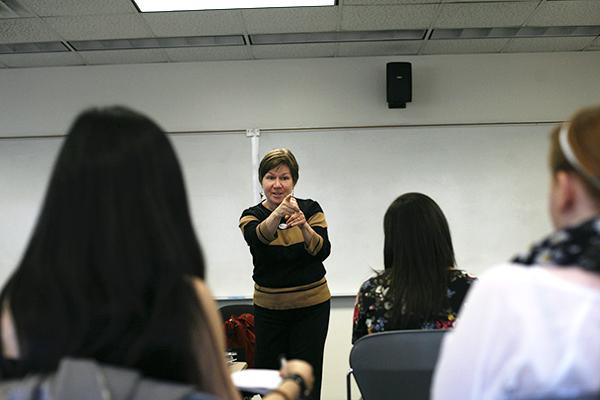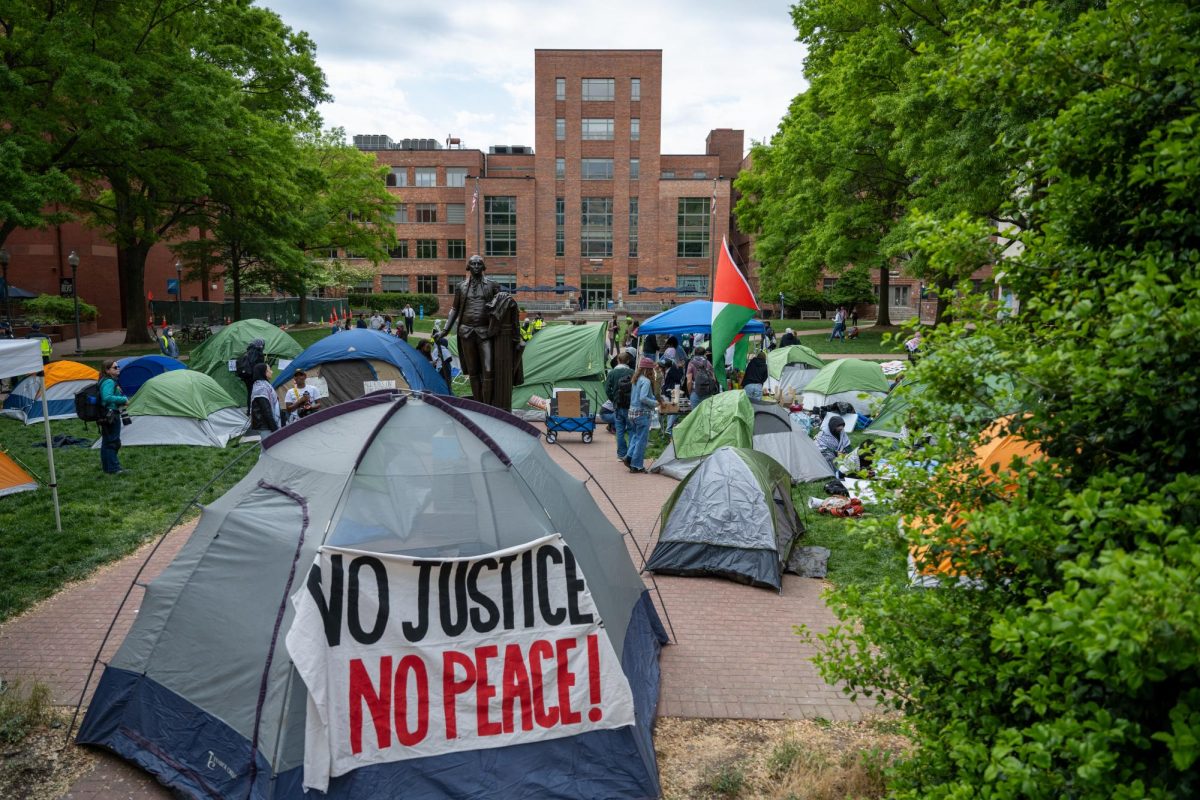Corrections appended
When Kelsey Edwards joined D.C. Reads her freshman year, she immediately noticed that nearly all of the students she tutored were black or Latino – while nearly all of her fellow workers were white.
That was troubling because, she said, most students “respond better to people who look like them.” Her observations in the classroom – and her efforts to recruit a more diverse tutoring base – are now the basis of her research paper for a class called human services and community empowerment.
That kind of research-based, service-learning class, one of about 10 offered for human services majors each year, is serving as a model as the roughly 65-major program undergoes its first curriculum overhaul since it was founded three decades ago.
“We wanted to help make clear that human services is a field. We’re trying to help people build more inclusive communities,” said Emily Morrison, the program’s director and an assistant professor of sociology.
Starting this fall, the program will require students to take new introductory and capstone courses that stress a real-world application of what they learn in the classroom. The new courses will also put more focus on issues like civil rights and social inequality.
While human services classes have always included a service-learning component, the new curriculum aims to improve the sequence in which students have those experiences.
The human services program was first offered to undergraduates in the 1980s – in what is now the Graduate School for Education and Human Development – after the field emerged two decades earlier help tackle issues related to “civil unrest,” Morrison said.
The small program, now housed within the sociology department, has fluctuated in enrollment but averaged about 45 students during the last five years.
Human services graduates typically go one of three routes after graduating: joining programs like the Peace Corps or Teach for America, working in the nonprofit sector or going to graduate school, Morrison said.
The curriculum overhaul was based on dozens of exit interviews given by every graduating senior for the last three years, in which students were asked about how prepared they felt to enter the workforce. The program also relied on faculty retreats and focus groups.
Under the new requirements, students will work with multiple nonprofit organizations over multiple semesters to help them gain a deeper understanding that organizations and the social problems they tackle.
This model is important, said Elizabeth Shrader, a lecturer for the last six years who requires students to write business plans for nonprofits. She said GW has recently partnered with organizations like Jumpstart and the D.C. Center for the LGBT Community, which can’t afford to have their own staff spend months or years tackling research questions.
“I’ve seen organizations become much more professionalized, and I think before the students have pushed them to have a more robust structure,” she said.
Travis McCown, a sophomore who declared his human services major immediately after coming to GW, said his service-learning classes have given him a chance to explore his passion in the nonprofit sector: advocating for LGBT issues.
“In almost every class, one of the major focuses is on passion, because we’re going to go into nonprofits,” he said. “Human services work is a struggle. It’s not a lot of pay and it’s very time consuming, but I think it’s good to get that motivation now.”
– Mary Ellen McIntire contributed to this report.
This post was updated Monday, April 7 to reflect the following correction:
The Hatchet incorrectly spelled the name of Travis McCown. We regret this error.
This post was updated Wednesday, April 9 to reflect the following corrections:
The Hatchet incorrectly reported that students would just work with one non-profit over multiple semester, while they will actually work in several non-profits. It also incorrectly reported the methods the program took to reshape the curriculum – it was based not only on exist interviews but faculty retreats.








